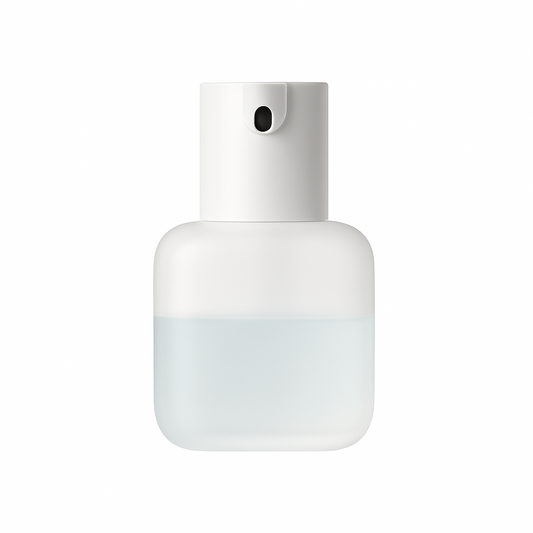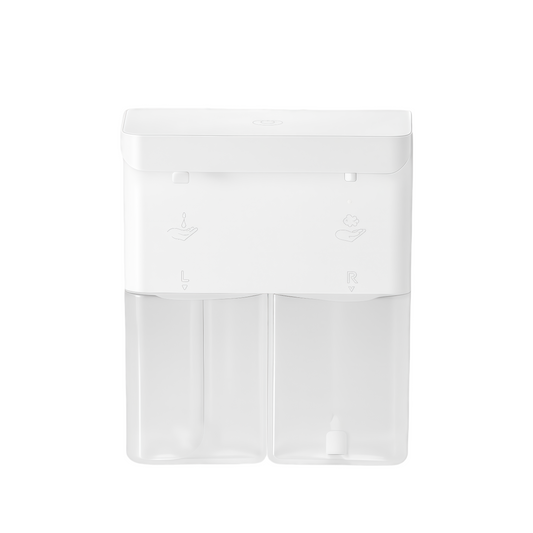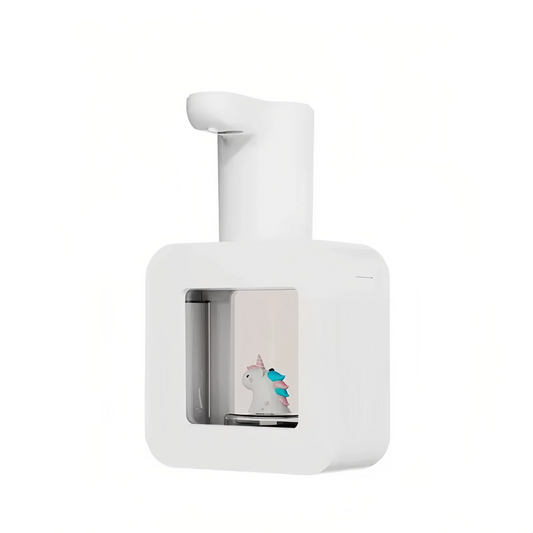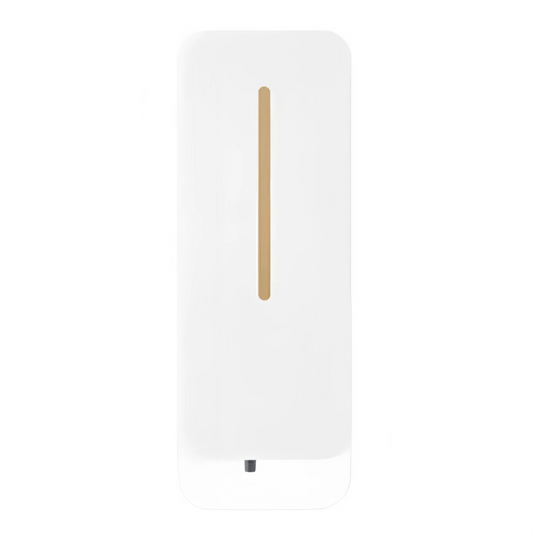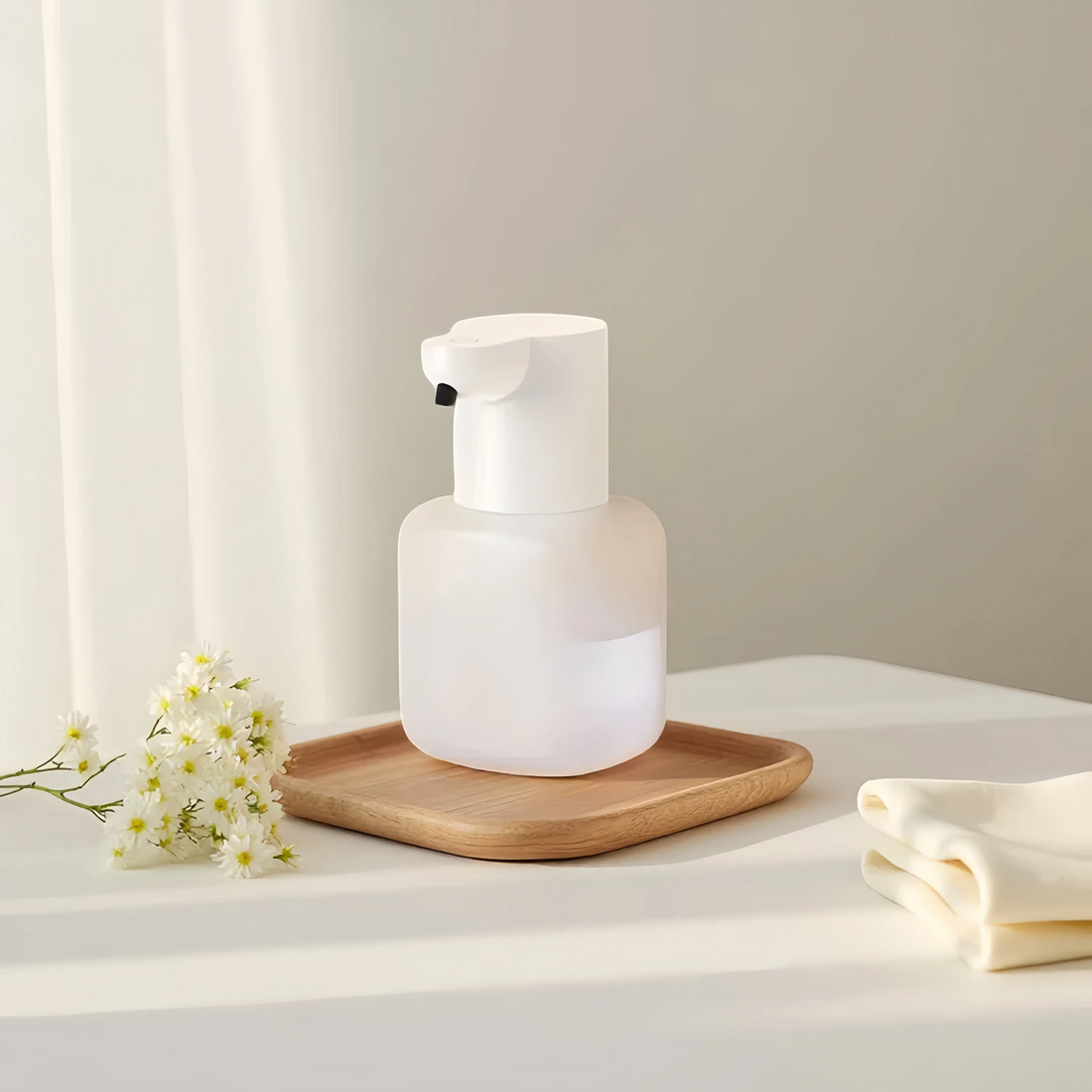
What Kind of Soap Should You Put in a Kitchen Sink Dispenser?
Share
When it comes to the kitchen sink, cleanliness is essential, and having an easily accessible soap dispenser can make hand-washing and cleaning up after meals much more efficient. If you have a kitchen sink soap dispenser, you're probably wondering: What kind of soap should I put in it?
It’s a great question, and the answer depends on your priorities—whether that’s convenience, efficiency and/or cleanliness. Here’s a guide to help you choose the right type of soap for your kitchen sink dispenser. Check out our double soap dispenser here.
1. Dish Soap: The Classic Choice
Best for: Washing dishes, pots, pans, and utensils.
Most kitchen sink dispensers are designed for liquid dish soap. Dish soap is formulated to break down grease and food particles, making it ideal for washing dishes.
Why:
Dish soap is specifically designed for grease-cutting, so it's excellent for cleaning dishes after meals.
It’s thick enough to flow properly through a sink dispenser without being too runny.
Most dish soaps are gentle on your hands, and some even come in moisturizing formulas.
Considerations:
If you opt for dish soap in your kitchen dispenser, it’s important to choose a version that is formulated to be non-stripping on your skin (as dish soaps can be a bit harsh on your hands if used too frequently).
Avoid overly thick or gel-like dish soaps, as they may clog the dispenser.
2. Hand Soap: For Quick Hand Washing
Best for: Washing your hands when prepping food or after handling raw ingredients.
You might already have a hand soap dispenser near your kitchen sink, but if you’re looking to refill a built-in dispenser, hand soap can be a good option too. Hand soap is great for getting rid of bacteria and is formulated to be more skin-friendly than dish soap.
Why:
It’s gentle on the skin and won’t dry out your hands.
It typically comes in a variety of scents and formulations, including antibacterial, moisturizing, or with added skin care ingredients.
Hand soap will flow easily through a dispenser without clogging.
Considerations:
Hand soap won’t have the same grease-cutting power as dish soap, so it’s not ideal for heavy-duty dishwashing or cleaning greasy pots and pans.
Some hand soaps can have additives like fragrances or dyes, which might not be preferred for a kitchen area.
3. Multi-Purpose Soap: A Versatile Option
Best for: Those who want an all-in-one solution for handwashing, dishwashing, and general cleaning.
Multi-purpose liquid soaps are becoming more popular as they can be used for a wide range of tasks—everything from washing hands to cleaning countertops. These soaps are often more environmentally friendly and can come in large, refillable containers, which makes them a sustainable choice.
To accommodate for larger volumes of liquid soaps, you can opt to use countertop soap dispensers such as Lume.
Why:
They’re typically gentle on the skin and can handle light dishwashing.
They are available in eco-friendly, natural, or hypoallergenic formulations, which may appeal to those with sensitive skin or concerns about chemical exposure.
Multi-purpose soaps are available in a variety of scents and come in large refill containers, so you won’t have to buy soap as often.
Considerations:
While these soaps can handle general dishwashing and handwashing, they may not be as effective at cutting grease or cleaning stubborn food stains compared to traditional dish soap.
They might be more expensive upfront if you buy high-quality, eco-friendly versions.
4. Dishwasher Detergent (Not Recommended)
Best for: Avoid it!
Some might be tempted to use dishwasher detergent in their kitchen sink dispenser, but this is a bad idea. Dishwasher detergent is specifically formulated for the environment inside a dishwasher, and it can be too harsh for manual dishwashing.
Why to avoid it:
It can produce an excessive amount of suds, which could lead to a mess.
Dishwasher detergent may contain chemicals that could be harmful if used inappropriately for handwashing or direct contact with food.
Considerations:
Always use detergent in a dishwasher, and avoid putting it in a soap dispenser.
5. Natural or Homemade Soap: For Eco-Conscious Consumers
Best for: Those looking for a more sustainable, non-toxic option.
If you're environmentally conscious, you may prefer natural or homemade soap made from ingredients like essential oils, plant-based surfactants, and other eco-friendly components. These types of soaps are free from synthetic fragrances, dyes, and chemicals that may not be good in a kitchen area.
Why it works:
Natural soaps are generally gentle on the skin and the environment.
Homemade or eco-friendly soaps often come in refillable packaging, reducing plastic waste. To reduce even more waste, you can consider a durable soap dispenser such as this double soap dispenser EcoDuo.
Many natural soaps have antimicrobial properties, making them suitable for handwashing in the kitchen.
Considerations:
Make sure that the natural soap you choose is still effective at cutting grease and cleaning dishes. Some natural soaps may not work well for heavy-duty cleaning tasks.
Homemade soap can sometimes be too thin, so it may not work well in dispensers unless you thicken it.
6. Foaming Soap: The Convenience of Foam
Best for: People who prefer quick, efficient handwashing with minimal soap usage.
Foaming soap is a popular option for many kitchens because it dispenses a light, airy foam that spreads easily, saving soap while still getting the job done.
Why it works:
Foaming soap typically uses less liquid and works effectively to clean hands and surfaces.
It’s gentle and often less harsh than regular liquid soap, making it ideal for handwashing.
Considerations:
If you have regular liquid soap, you’ll need a special foaming soap dispenser or a conversion insert.
Like other hand soaps, foaming soap won’t be as effective as dish soap when it comes to washing greasy dishes.
Conclusion: Which Soap Is Best for Your Dispenser?
In the end, the type of soap you choose for your kitchen sink dispenser depends on what you’ll be using it for most frequently. Here’s a quick rundown:
Dish soap is your go-to for cleaning dishes and removing grease.
Hand soap is perfect for washing hands and maintaining cleanliness while preparing food.
Multi-purpose soap is ideal for general use but may lack the grease-cutting power of traditional dish soap.
Natural or homemade soap is great for eco-conscious users who want a chemical-free option.
Foaming soap is convenient, efficient, and easy to use, but may not work as well for dishwashing.
By understanding your needs and priorities, you can choose the soap that will work best for your kitchen sink dispenser, making cleaning and handwashing a breeze.

